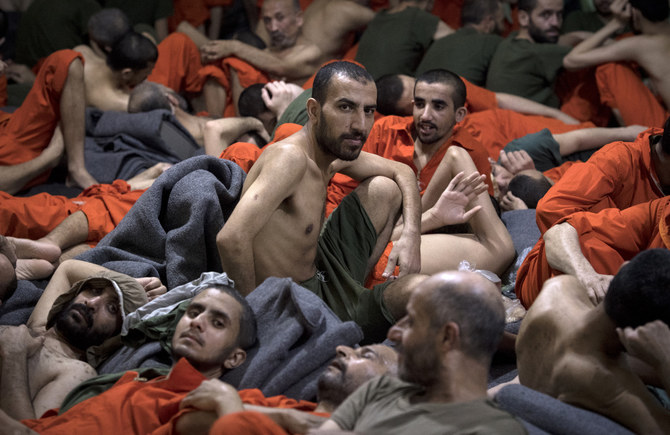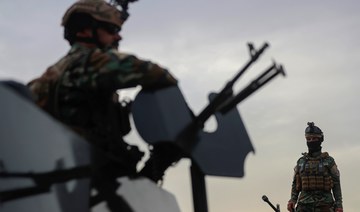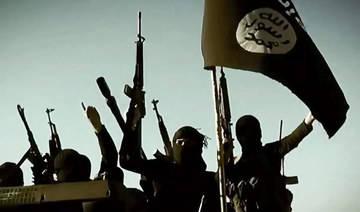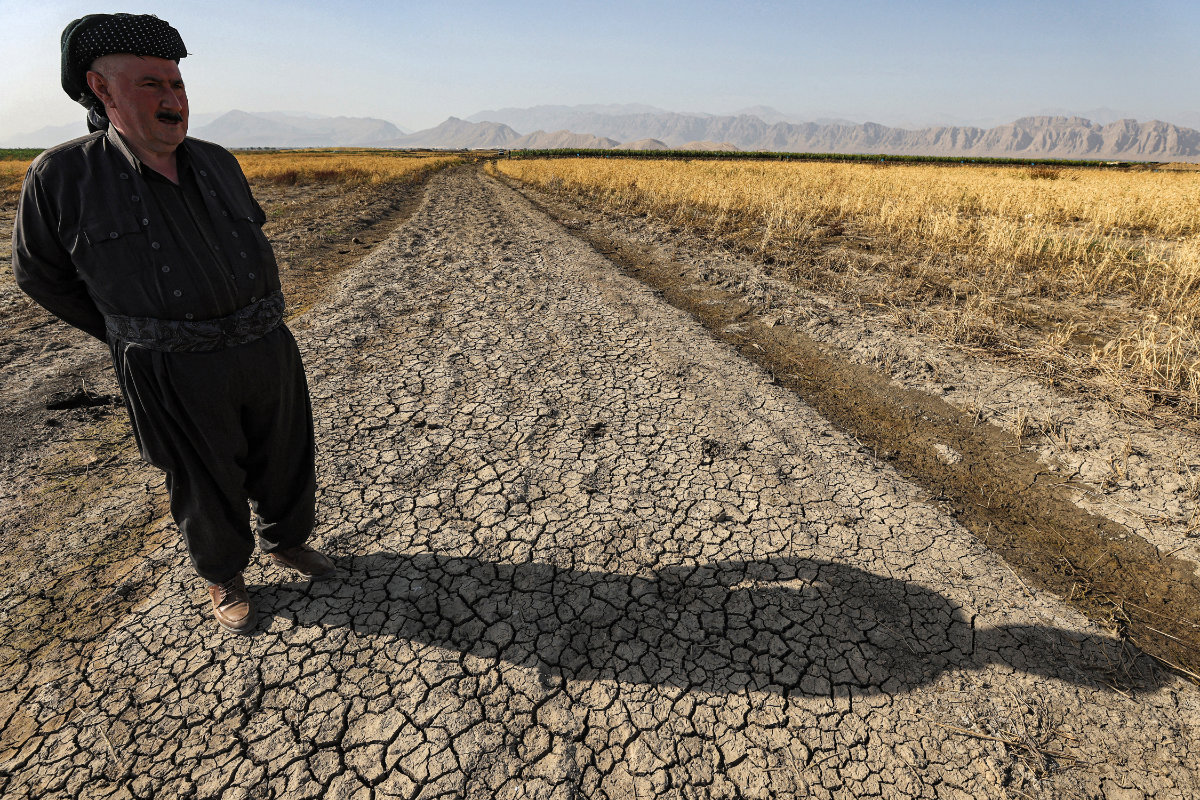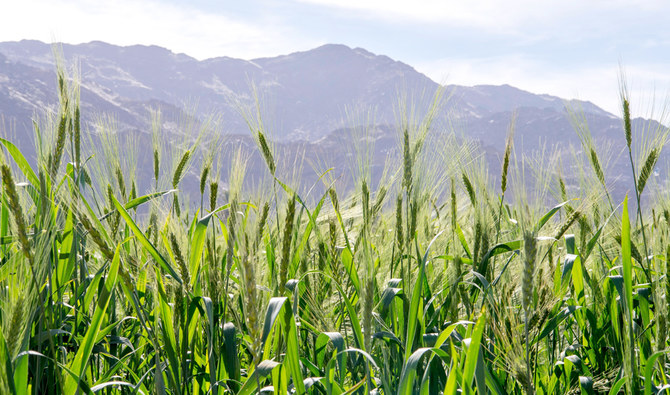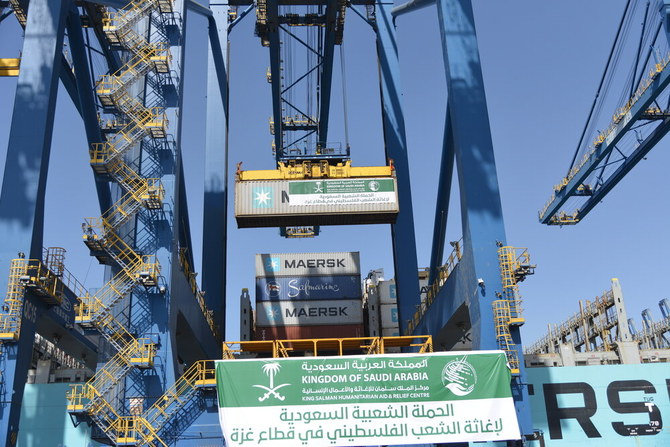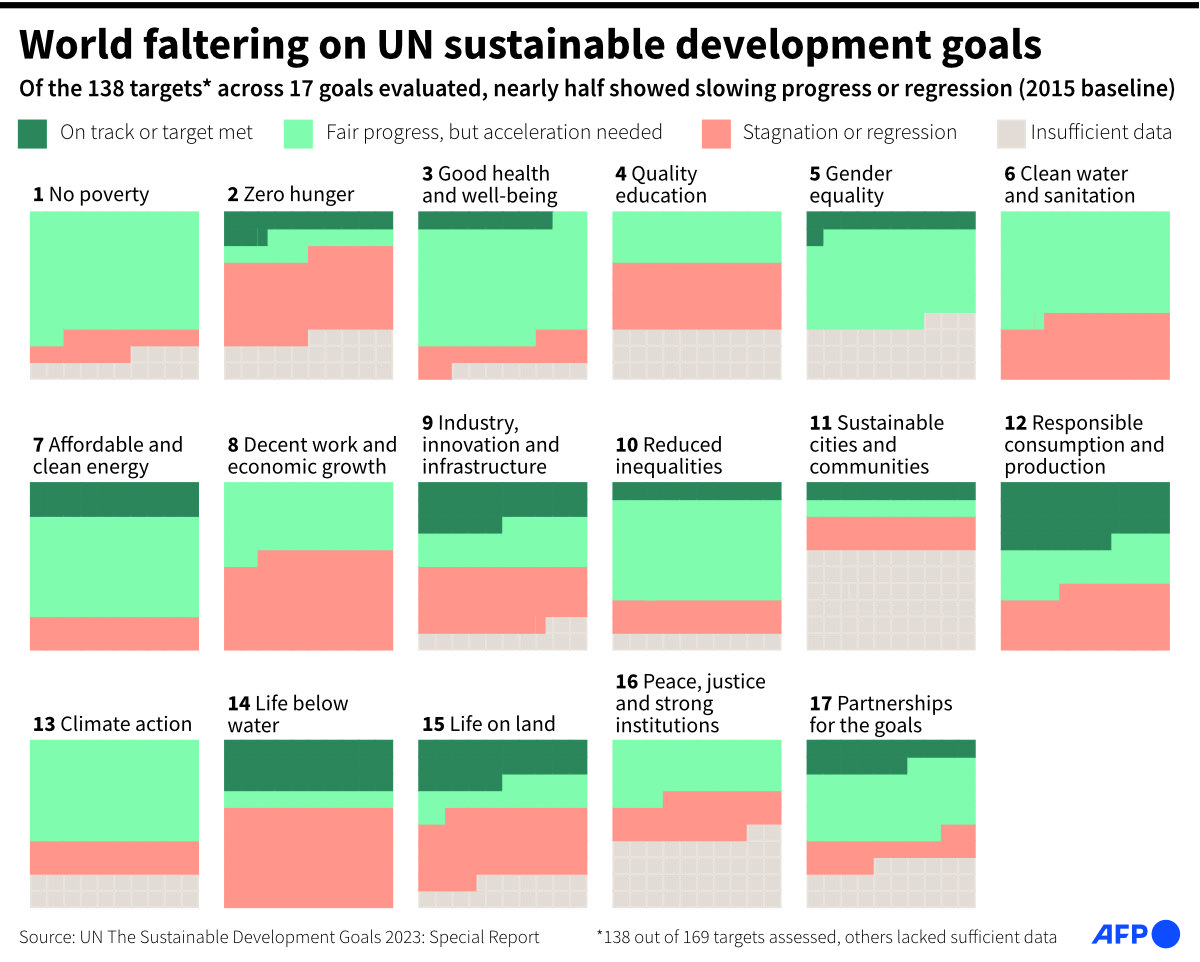QAMISHLI: The world breathed a collective sigh of relief in March 2019 when Daesh, the extremist group that had brought terror to vast swathes of the region since 2014, was finally defeated in its last territorial holdout of Baghouz, eastern Syria.
The battle for Daesh’s final enclave marked the end of the group’s so-called caliphate, which at its peak occupied an area spanning Syria and Iraq the size of Great Britain.
However, it was soon clear to those who had led the costly ground operation against Daesh — the Syrian Democratic Forces — that the fight was far from over.
Thousands of foreign Daesh fighters and their families were captured during the final battle at Baghouz and transported to prisons in territories administered by the Autonomous Administration of North and East Syria, beyond Syrian government control.
For years, these Daesh fighters remained in a state of legal limbo. Their foreign status, and the fact the AANES is itself considered a non-state actor, made it difficult to determine precisely what to do with them.
On June 10, AANES officials announced they would pursue their own legal avenues of justice by establishing a tribunal to try up to 3,000 foreign Daesh-linked individuals held in their custody before a court of law.
“As a result of the increasing danger and growth of (Daesh) in the region, the presence of these detainees for long periods without trial constitutes a burden and a danger to the region and the world,” Khaled Ibrahim, a lawyer and member of the administrative body of the AANES Foreign Relations Department, told Arab News.
For years, the official policy of the AANES was to pursue the repatriation of Daesh-linked individuals to their countries of origin. However, several of these countries have been reluctant to take back their citizens, citing national security concerns.

Syrian Kurdish Asayish security forces deploy during a raid against suspected Daesh fighters in Raqqa, the jihadist group's former de facto capital in Syria, on Jan. 28, 2023. (AFP)
In fact, the number of repatriations is falling. Last year, 13 countries repatriated 515 foreign nationals from northeast Syria. In the first six months of 2023, about 105 women and children have been repatriated.
According to the Rojava Information Center, a local conflict monitor, some 2,774 foreign Daesh suspects have been repatriated since 2019 — a drop in the ocean given the roughly 13,000 foreign men, women and children still in northeast Syria’s prisons and camps.
Despite years of warnings from the AANES about the Daesh threat, the terrorist group demonstrated just how great a threat it still poses by staging a massive uprising in Gweiran prison in northeast Syria’s Hasakah.
In January 2022, a series of car bombs were detonated at the prison gates while Daesh sleepers outside the prison walls opened fire on guards.
After more than a week of the heaviest fighting the city had seen since its liberation from Daesh in 2015, some 159 members of the SDF, four civilians, and at least 345 prisoners had been killed. Scores of inmates escaped.
“In our prisons, we are holding thousands of the most brutal Daesh fighters. We cannot keep them anymore. It creates a security problem for our region,” Bedran Chiya Kurd, co-chair of the AANES Foreign Relations Department, told a press conference on June 15.
In 2022 alone, Kurd said the SDF and the Global Coalition had carried out 113 anti-terror operations, which resulted in the arrest of 260 Daesh-linked individuals in northeast Syria.
According to the SDF media center, in May this year, the SDF carried out 12 unilateral anti-Daesh operations, four operations in partnership with the Global Coalition and Iraqi Kurdistan-based Counter-Terrorism Group, which resulted in the death of one suspected terrorist and the capture of 21.
“This is evidence that Daesh is trying to revive itself, grow stronger and resume its activities. If we don’t prevent it, it will only be a matter of time before they become active again and threaten the entire region,” Kurd said.
The planned tribunals are not merely designed to punish Daesh combatants, nor to reduce their chances of escaping and rejoining the battlefield.
“It’s important for the rights of victims, for the rights of our people who suffered, and for the rights of those who paid a heavy price,” Kurd said.
“We gave more than 13,000 martyrs in this fight, and have thousands of veterans who were injured and disabled. It’s important to seek justice for these people.”
However, Kurd added, the pursuit of justice would not interfere with the desire of the AANES to adhere to international standards.
“It’s been almost five years that these people have been held in detention. Holding people without trial is not legal and does not comply with international standards,” he said.
Although the trials would be “very transparent and fair,” Kurd said many of the details were still yet to be determined. There is no set date for the process to begin and, due to security concerns, the location of the trials will not be published.
Although lawyers representing the detainees will be allowed to travel to northeast Syria to defend their clients, the logistics behind this process are yet to be explained. It was also unclear whether detainees without their own lawyer would be provided one by the AANES.
Furthermore, it is unclear whether foreign women, who did not serve in combat roles, will be tried. Given that women and children make up two-thirds of the foreign Daesh detainees, their exclusion from the process would significantly reduce the number of individuals on trial.
In a statement issued soon after the June 10 announcement, the AANES did not state outright that they would prosecute women, instead considering them “victims.”
However, in the June 15 press conference, Kurd said that some women might be tried if there was sufficient evidence to suggest they had committed crimes.
It was made clear, however, that the death penalty would be off the table, as the punishment is illegal under the AANES Social Contract, which acts as its constitution.
The AANES already has an anti-terror court system, which had tried about 8,000 Syrian nationals, Sipan Ahmed (whose name was changed for security reasons), a prosecutor at the People’s Defense Court of Qamishli, told the Rojava Information Center in a 2021 interview.
While there are currently no details on precisely what punishments are likely to be handed down during the upcoming trials, Ahmed said AANES law 20-2014 set out sentences for particular crimes — 15 to 20 years for rape, 10 to 20 years for human trafficking and 15 years to life for murder.
Punishments for Daesh membership currently range from one year for low-level roles in the group’s activities to life sentences for being among its leadership or handing out execution orders.
The status of both the detainees and the AANES itself, therefore, posed a litany of legal challenges, Themis Tzimas, a lawyer and international law expert, told Arab News.
“The autonomous administration is neither a state, nor internationally recognized. It constitutes a de facto, illegally, semi-seceded part of a sovereign state. It possesses no legal authority justifying the conduct of a trial on its de facto controlled territory and by its authority,” Tzimas said.
However, due to the lack of formal diplomatic relations between the AANES and the Syrian government, Kurd said there was currently no mechanism in place to hand foreign detainees over to Damascus.
And while Tzimas believes an international, ad hoc tribunal could be a solution to the various legal quandaries brought up by such a trial, Kurd said the AANES had not received any offers of assistance from either foreign states or international legal bodies.
Contrary to popular belief, a non-state actor independently trying foreign nationals in this way is not unprecedented in the history of international law. Trials carried out by the unrecognized Russian-backed republics of Donetsk and Luhansk are one such example.
Katerina Asimakopoulou, a legal expert with a master’s in public international law, told Arab News that other such cases might give precedent to the AANES courts, and that its unofficial status might not be the roadblock it first appeared.
Asimakopoulou referenced a 2017 case in which a Swedish court convicted a former Syrian rebel fighter for violations of international law after a video surfaced showing him taking part in the execution of Syrian regime soldiers.
The defendant, Omar Haisan Sakhanh, attempted to use the defense that those Syrian soldiers had been tried and sentenced by a court set up by the opposition Free Syrian Army.
While the court eventually convicted Sakhanh, it also accepted that the FSA, a non-state actor, was allowed to establish its own courts.
Other non-state armed groups, including the Liberation Tigers of Tamil Eelam in Sri Lanka, the Movement for the Liberation of the Congo in the Democratic Republic of the Congo, and the Farabundo Marti National Liberation Front in El Salvador, have all carried out trials under their own court systems, according to Asimakopoulou.
She added that in 2018, the French government declared it had no interest in trying French Daesh members in its own courts, preferring instead that they be tried by the AANES.
“It’s a very ambiguous matter, actually,” she told Arab News. “According to a state-centric view, yes, there is no legal authority for non-state armed groups to establish courts.
“However, international practice and jurisprudence has shown that, once such a court is indeed established, its decisions will be judged depending on whether they provided the so-called fundamental guarantees of a fair trial.”




